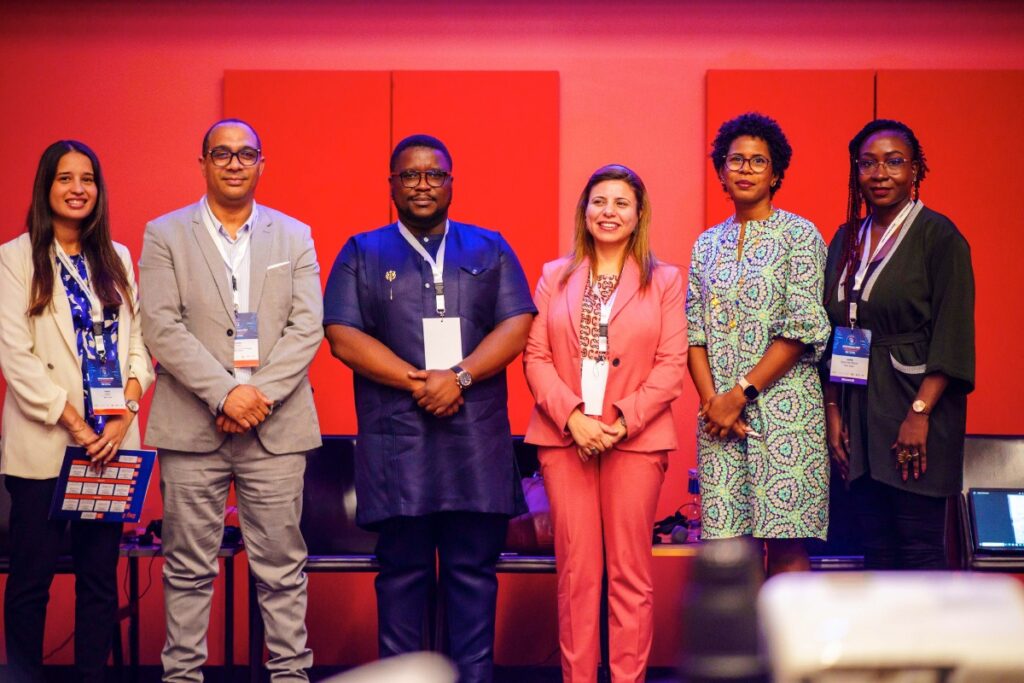- Niyel sparks vital dialogue on policy opportunities and challenges for artificial intelligence in Africa
- AI if fast tracked can help to achieve the SDG goals by 2030.

Niyel, a leading international impact-driven campaign, advocacy, and African public affairs firm, played a pivotal role in strengthening public policy and advocacy as one of the core organisers of the inaugural AfricAI Conference 2023.
The conference, themed “Advancing Responsible and Open AI Ecosystems in Africa,” provided a platform for thought leaders, policymakers, researchers, and civil society representatives to explore the potential of Artificial Intelligence (AI) in Africa while addressing pertinent policy challenges.
At the forefront of shaping Africa’s AI landscape, Niyel hosted a panel discussion titledPolicy Challenges of AI in Africa: Boosting the Engagement of African Decision Makers. This session brought together key stakeholders to delve into crucial aspects such as regulatory frameworks, legislative considerations, best practices, and innovative solutions that could drive the AI sector forward and strengthen decision-makers’ roles at a country level.
Laetitia Badolo, Director of Advocacy and Impact at Niyel, highlighted the firm’s commitment to building an inclusive and responsible AI ecosystem in Africa.
“At Niyel, we recognise that AI has the potential to revolutionise Africa’s development, but it must be harnessed responsibly. We aim to address policy challenges surrounding AI adoption and facilitate meaningful engagement between decision-makers and stakeholders. We believe in creating sustainable synergies that prioritise Africa’s cultural values and nurture a sense of patriotism while embracing AI-driven progress,” she said.
READ ALSO: Google Answers ChatGPT With its new Artificial Intelligence chat Service Google Bard
The prevailing sentiment expressed by all the stakeholders about the human element of AI was evident in every conversation, primarily as human truth is used to train AI.
The multiple diverse human viewpoints and biases create a more accurate information-rich environment for AI.
The discussions explored inclusive policies, encouraging research and development in AI technologies, establishing guidelines for AI adoption, promoting open data initiatives and ensuring that data sources are accessible, and fostering cross-sector collaborations to drive innovation and create solutions that address local needs.
Niyel aims to address policy challenges using data-based evidence, as provided by the research institutions with which they are in partnership to move Africa’s AI ecosystem forward, creating a tangible positive impact across the continent.
Collaboration was a recurring theme echoed by Dr. Laure Tall, Director of Research at Initiative Prospective Agricole et Rurale (IPAR), an African Think Tank based in Senegal. She stressed the significance of collective efforts involving relevant stakeholders to establish tailored frameworks that align with Africa’s unique context.
Speaking on efforts that have been made on the continent, Alain Ndayishimiye, the Project lead Artificial Intelligence/Machine Learning at Rwanda Centre for 4th Industrial Revolution (C4IR) stated, that AI if fast tracked can help to achieve the SDG goals by 2030.
“Since we were founded in 2020, we have put in place a data protection law to look on data protection with the use of AI, and are in the process of developing a national AI research agenda which includes a vibrant ecosystem for local and international participation; establishing a roadmap to determine public and private sector adoption of AI,”
The Advisor to the Minister for information and Communication Technologies of Tunisia, Mrs. Wala Turki, spoke about the current policies and frameworks implemented.
“On the country level, Tunisia adopted the national Digital Strategy (2021-2025) based on a cross-sector and multi-stakeholder approach and reinforced with a concrete and a clear Action Plan.’’
She added, that Tunisia’s Digital Strategy contributed to the adoption of other relevant policies and frameworks such as the AI Strategy which was developed under the leadership of a ministerial steering committee in collaboration with other relevant ministries, leading towards an inclusive growth and a better quality of life for all Tunisian citizens.
As a driving force for change, Niyel’s unwavering dedication to advancing responsible and open AI ecosystems in Africa solidifies its position as a key player in shaping AI policy and advocacy.
The firm continues to work tirelessly in collaboration with policymakers, civil society organisations, and research institutions, advocating for progressive AI policies and practices that align with Africa’s needs, promote ethical and inclusive development, and bridge the digital divide.


